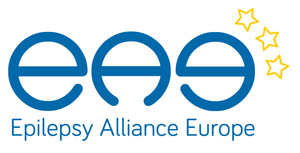What Is A Written Declaration?
A written declaration is a text of a maximum of 200 words relating exclusively on a matter falling within the competence of the European Union. They do not, however, bind Parliament, that is, they cannot be considered as an act of the Parliament representing its position, but only those of its authors and signatories.
A written declaration runs for a three-month period, once launched. If, at the end of a three- month period from its entry into the register, the declaration is signed by a majority of the Members of the European Parliament, it is published in the minutes and forwarded to the EU Institutions named in the text, together with the names of the signatories.
Declarations that, at the end of the three month period, have not been signed by at least half the Members of the European Parliament lapse.
Declarations are translated and printed in the official EU languages. While the process has since changed, in 2011, declarations were included in a register which was available for MEPs to sign outside the entrance to the Chamber during plenary sessions in Strasbourg and mini-sessions in Brussels. In-between these sessions, declarations were not available for signing.
EU Written Declaration on Epilepsy 22-2011
In May 2011, the European Advocates for Epilepsy MEP group submitted a Written Declaration to the Parliament. The submission carried the signatures of 5 MEPs – Mr Gay Mitchell MEP, President of the European Advocates for Epilepsy Group, and co-signed by four other MEPs: Mr Nirj Deva (UK), Mrs Marian Harkin (Ireland), Mr Peter Skinner (UK) and Mrs Angelika Werthmann (Austria) representing the five different parties in European Parliament.
The declaration was available for signing during the plenary sessions in May, June, July and in September (following the summer recess). At the end of the 3 month period, on 15 September 2011, the declaraion had received 459 signatures. This was 90 more than the number required to achieve a majority of MEP signatures and was also, at that time, the highest number of signatures for a health related declaration in that EU term.
How Can A Written Declaration Be Used?
A written declaration is a very valuable document to use at local and European level, for example, in
- advocating for increased research funding;
- advocating for improved healthcare facilities and services provision for people with epilepsy;
- building other significant initiatives at European level.
The success of the Written Declaration on Epilepsy, led to a significant increase in the level of research funding for epilepsy granted during the final call of the EU Funding Programme FP7.
In addition, MEPs can use written declarations to launch or relaunch initiatives that come within the EU’s remit.
Download EU Declaration on Epilepsy
To find out more about the EU Declaration on Epilepsy download it here.

